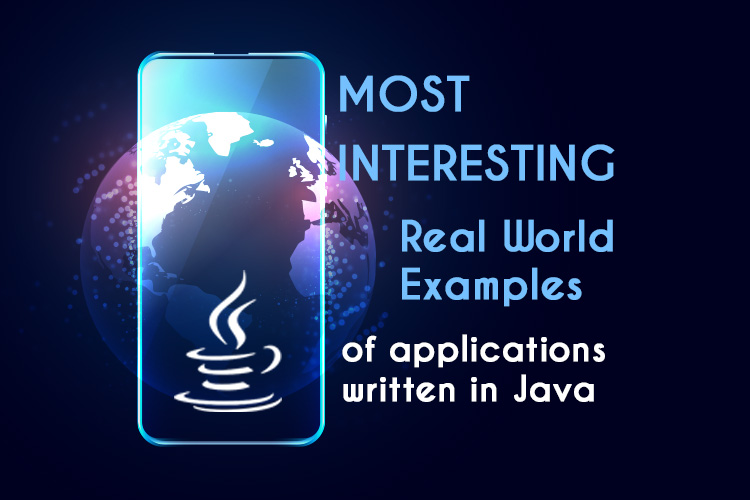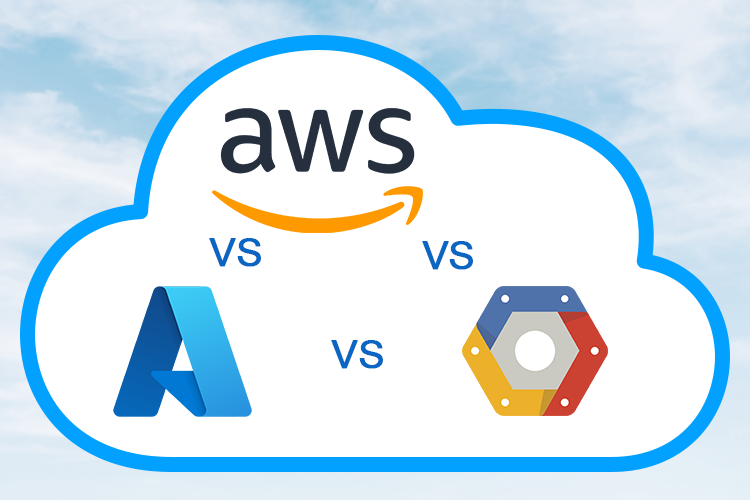Most interesting real-world examples of applications written in Java

Most Interesting Real-world Examples of Applications Written in Java
Java is one of the most popular programming languages used today given its versatility and stability. It continues to be widely used in a wide range of projects for backend, web, and Android app development. In fact, according to a report from GitHub, Java was continuously in the top three most popular programming languages over the past ten years, along with Javascript and Python. Since Java is so widely used, we decided to share with you some of the most popular Java apps so you can see for yourself all of the various ways this language can be used.
Spotify Java Application
Spotify is a Swedish music service available in nearly 120 countries. Its catalog contains more than 50 million songs and 4 billion playlists with tracks from artists all over the world. The service can be used on the web, on desktops, mobile devices, game consoles, and Smart TVs. The main advantage Spotify has over its competitors is its music selection algorithms, which are almost perfectly tailored to the tastes of the listeners. All you have to do is enable the Music Non-Stop function in the settings and similar tracks will automatically play at the end of the playlist. Very often you will find something new and interesting for yourself thanks to this algorithm.
Even though Spotify uses C++ for its desktop app and the C language for iOS apps, it still uses Java for Android development since Java is one of the two official Android programming languages. Also, Android’s APIs streamline a lot of development processes allowing them to add new features and fix any bugs a lot faster.

Twitter Java Android App
Twitter is one of the most popular social media platforms in the world. There are more than 330 million monthly active users and 145 million daily active users on Twitter. Ever since its founding in 2006, the company continued to grow with almost every celebrity or public personality having their own Twitter page and loyal user following. Twitter’s Android app is created with Java because it works so well across devices and also because it is only one of two accepted languages by Google for developing mobile apps.
Cash App Java Android Application
Cash App is a mobile payment service developed by Square, Inc. that allows users to transfer money to each other using a mobile phone app. Today, Cash App has more than 30 million active users and it is expected to continue growing since you can use this app to buy Bitcoins and you can use it to buy and sell stocks without any commission. Their Android app is written in Java since it works across devices and there are robust security features already built-in, which are especially important for Fintech apps. This includes avoiding pointers, Bytecode, and access control functionality.
Signal Android application written in Java
Given all of the latest privacy issues with WhatsApp, a lot of users have started transitioning to Signal, which offers much stricter security. Signal is a cross-platform service that created its Android application with Java given its popularity in the Android development community. The security features we talked about in the previous section are also very much useful for creating an encrypted messaging service. Additional security features include class declarations, structured error handling, and code reusability.
NASA WorldWind for Java, Web, or Android apps
Thanks to NASA WorldWind the work of rocket scientists became accessible for all to use. This application allows programmers to add NASA’s geographic rendering engine to their own Java, web, or Android apps. NASA WorldWind goes beyond the functionality of popular apps like Google Earth since it provides geospatial data generated by NASA’s more advanced systems. Such data can be useful for monitoring weather patterns, visualizing terrains, and, in general, learning more about the earth.

Wikipedia’s Search Engine written in Java
If we think about the open nature of Wikipedia i.e. it’s a free encyclopedia created by the people for the people, it is very much appropriate that it should run on open-source software and have a search engine powered by Java. Although Wikipedia used several search engines dating back to the 1990s, they started using Elasticsearch in 2014, which is a distributed, REST-enabled search engine written in Java. Previously they used Lucerne, which is a Java library and Elasticsearch was built on top of that as a JSON-based distributed web server.
Hadoop Real-time Java-based Big data Technology
In the early 2000s, Google unveiled the MapReduce algorithm for processing data on large clusters of commodity computers. Not too long after, James Cutting, an engineer for XEROX, Apple, and Yahoo, created an open-source framework for MapReduce operations in Java. He called this new program Hadoop, after his son’s toy elephant. This is why the Hadoop logo prominently displays an elephant. Interestingly enough, Cutting is also the creator of the Lucerne search engine for Wikipedia we described earlier. When Cutting released the first version of Hadoop in 2006, it started the big data trend prompting companies to collect “data lakes”. Within six years, Hadoop became so popular that Facebook claimed to have the largest Hadoop cluster at 100 petabytes.
Contact Softwarium to Start Creating Your Java App Today
Whether you are looking to create the next popular messaging app, search engine, streaming service, or any other application, Softwarium has the necessary skills and expertise to make your vision a reality. With more than 20 years of industry experience, we collected vast amounts of industry knowledge that allows us to create state-of-the-art products while keeping costs under control. Contact us to learn about how Softwarium can assist you in your development efforts or browse through our case studies to discover some of the solutions we created for our clients.


